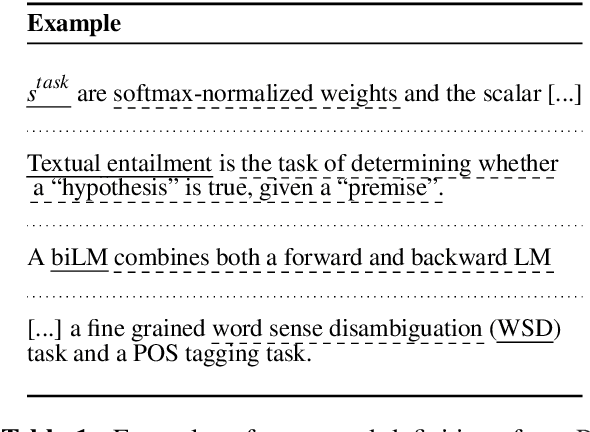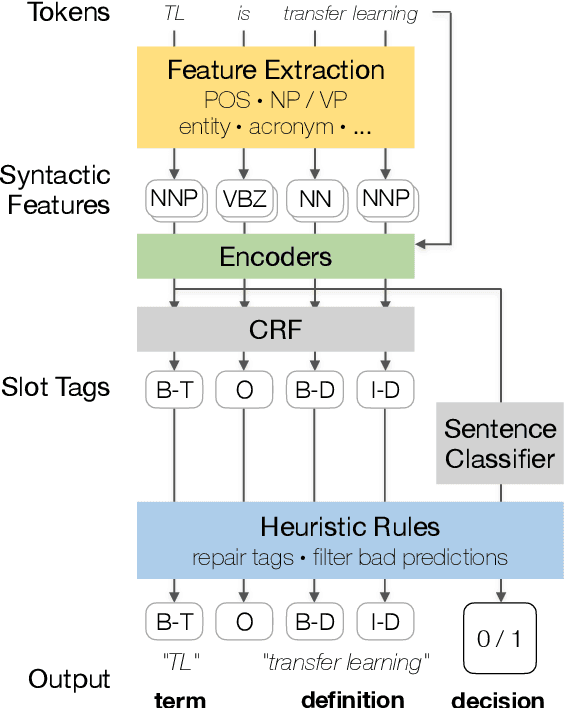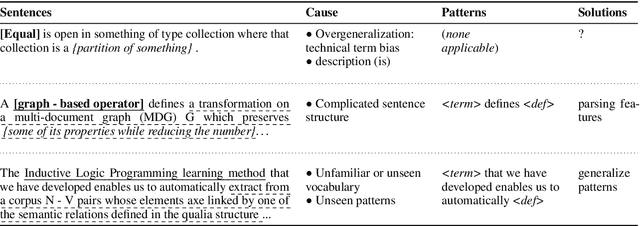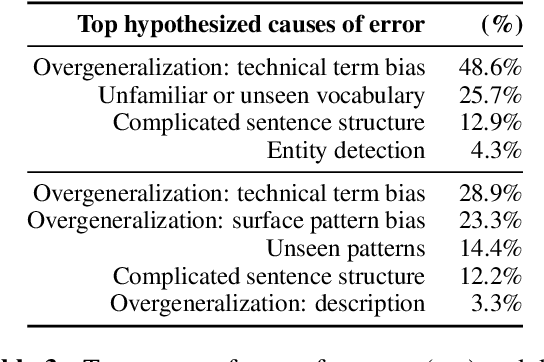Document-Level Definition Detection in Scholarly Documents: Existing Models, Error Analyses, and Future Directions
Paper and Code
Oct 11, 2020



The task of definition detection is important for scholarly papers, because papers often make use of technical terminology that may be unfamiliar to readers. Despite prior work on definition detection, current approaches are far from being accurate enough to use in real-world applications. In this paper, we first perform in-depth error analysis of the current best performing definition detection system and discover major causes of errors. Based on this analysis, we develop a new definition detection system, HEDDEx, that utilizes syntactic features, transformer encoders, and heuristic filters, and evaluate it on a standard sentence-level benchmark. Because current benchmarks evaluate randomly sampled sentences, we propose an alternative evaluation that assesses every sentence within a document. This allows for evaluating recall in addition to precision. HEDDEx outperforms the leading system on both the sentence-level and the document-level tasks, by 12.7 F1 points and 14.4 F1 points, respectively. We note that performance on the high-recall document-level task is much lower than in the standard evaluation approach, due to the necessity of incorporation of document structure as features. We discuss remaining challenges in document-level definition detection, ideas for improvements, and potential issues for the development of reading aid applications.
 Add to Chrome
Add to Chrome Add to Firefox
Add to Firefox Add to Edge
Add to Edge